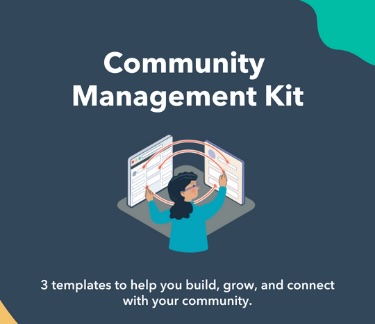In recent years, cloud computing has become an essential tool for businesses of all sizes. The retail industry, in particular, has seen a significant transformation thanks to cloud computing. Revolutionizing Retail: Microsoft Azure’s Impact on the Shopping Experience, one of the leading cloud computing platforms, has played a crucial role in this transformation. In this blog post, we’ll take a deep dive into how Microsoft Azure is revolutionizing retail and explore the benefits of cloud computing for retailers.

What is cloud computing?
Before we dive into how Microsoft Azure is transforming the retail industry, it’s essential to understand what cloud computing is and how it works. Cloud computing refers to the delivery of computing services over the internet. Instead of storing and accessing data and programs on a local server or computer, cloud computing allows users to access these resources remotely, over the internet. Cloud computing offers many benefits, including increased efficiency, scalability, and cost savings.
What is Microsoft Azure?
Microsoft Azure is a cloud computing platform offered by Microsoft. It provides a wide range of cloud-based services, including computing, storage, and analytics. Azure is a popular choice for businesses of all sizes, thanks to its reliability, scalability, and security features. It offers a wide range of tools and services that can help businesses solve complex problems and improve their operations. Want to get in detail click here
How is Microsoft Azure transforming the retail industry?
The retail industry is facing several challenges, including increasing competition, changing consumer behaviour, and rising costs. Microsoft Azure is transforming the retail industry by providing retailers with the tools they need to address these challenges and improve their operations.
Click here also to know how benefit in Financial sector.
One of the key ways Microsoft Azure is transforming the retail industry is by providing retailers with real-time data analysis and insights. With Azure, retailers can collect and analyse data from multiple sources, including sales transactions, customer interactions, and social media. This data can be used to gain a better understanding of customer behaviour, preferences, and trends, allowing retailers to make more informed decisions about their operations.
Microsoft Azure is also helping retailers enhance their customer experience. Azure provides retailers with tools and services to develop personalized experiences for their customers. For example, retailers can use Azure to create personalized product recommendations, offer targeted promotions, and provide real-time customer support.
Another way Microsoft Azure is transforming the retail industry is by increasing efficiency and productivity. Azure provides retailers with tools to automate routine tasks, such as inventory management, pricing, and order processing. This can help retailers save time and resources, allowing them to focus on more critical aspects of their business.
In addition to increasing efficiency and productivity, Microsoft Azure can help retailers reduce costs and improve profitability. Azure provides retailers with a scalable infrastructure, allowing them to pay for only the resources they need. This can help retailers save on infrastructure costs and improve their bottom line.
Finally, Microsoft Azure is helping retailers enhance their security and compliance. Azure provides retailers with advanced security features, including data encryption, threat detection, and identity management. This can help retailers protect their customers’ data and prevent security breaches.
Real-world examples of Microsoft Azure in retail
There are many real-world examples of retailers using Microsoft Azure to transform their business. For example, Walgreens, the pharmacy chain, is using Azure to develop a personalized mobile app that provides customers with real-time prescription information, product recommendations, and in-store promotions. This app has helped Walgreens improve its customer experience and increase sales.
Another example is Marks and Spencer, the UK-based retailer, which is using Azure to automate its supply chain operations. Azure is helping Marks and Spencer reduce costs, improve efficiency, and provide better customer service.
Best practices for implementing Microsoft Azure in retail
Implementing Microsoft Azure in retail can be challenging. However, by following some best practices, retailers can ensure a successful implementation and maximize the benefits of Azure. Here are some best practices for implementing Microsoft Azure in retail:
1. Develop a clear strategy: Before implementing Microsoft Azure, retailers should develop a clear strategy that outlines their objectives, requirements, and priorities. This strategy should take into account the unique challenges and opportunities of their business.
2. Choose the right Azure services: Microsoft Azure offers a wide range of services, and retailers should choose the services that best meet their needs. This may include services for data analysis, customer experience, supply chain management, and more.
3. Ensure data quality and accuracy: To get the most out of Microsoft Azure, retailers need to ensure the quality and accuracy of their data. This may require cleaning, organizing, and integrating data from multiple sources.
4. Train employees: Implementing Microsoft Azure may require changes to existing processes and workflows. Retailers should provide training and support to their employees to ensure they understand how to use Azure effectively.
5. Monitor and measure performance: To ensure the success of their Azure implementation, retailers should monitor and measure performance regularly. This may involve tracking metrics such as customer satisfaction, sales, and operational efficiency.
Conclusion
In conclusion, Microsoft Azure is transforming the retail industry by providing retailers with the tools they need to address their challenges and improve their operations. Azure offers many benefits for retailers, including real-time data analysis and insights, enhanced customer experience, increased efficiency and productivity, reduced costs and improved profitability, and enhanced security and compliance. By following best practices for implementing Microsoft Azure in retail, retailers can ensure a successful implementation and maximize the benefits of Azure for their business. As cloud computing continues to grow in popularity, retailers that embrace these technologies will be better positioned to succeed in a rapidly changing retail landscape.


